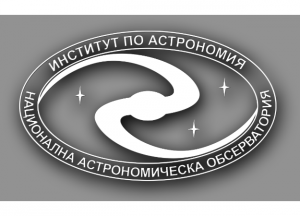Institute of Astronomy with National Astronomical Observatory
 The Institute of Astronomy with the National Astronomical Observatory (IA with NAO) conducts scientific research in the field of astronomy and astrophysics and prepares specialists and PhD students in this field.
The Institute of Astronomy with the National Astronomical Observatory (IA with NAO) conducts scientific research in the field of astronomy and astrophysics and prepares specialists and PhD students in this field.
The Institute operates two modern observatories for astronomical observations and research: The National Astronomical Observatory (NAO) Rozhen and Astronomical Observatory (AO) in the town of Belogradchik. The main telescope of NAO Rozhen is a two-meter reflector with optical system Ritchey-Chretien-Coude. The other two optical telescopes of NAO Rozhen, the 60-cm Cassegrain telescope and the 50/70-cm Schmidt telescope, are specialized for photometric observations. Since 2005, NAO Rozhen operates a 15-cm Lyot-coronagraph developed and built at the Institute of Astronomy and mounted in the solar dome. The second observation facility of the Institute, AO Belogradchik, is equipped with a 60-cm Cassegrain reflector.
Research activity
The Institute of Astronomy with the National Astronomical Observatory (IA with NAO) conducts fundamental research in the field of astronomy, astrophysics and celestial mechanics. These studies are related to the theoretical and practical study of objects, processes and phenomena in the universe and their evolution.
Extreme conditions in the universe, such as large densities, temperatures and magnetic and gravitational fields, near absolute vacuum, speeds close to the speed of light, and temperatures close to absolute zero enable us to study processes in an environment that cannot be achieved in laboratory conditions. The study of astrophysical processes contributes to the development of other sciences with practical applications such as atomic and nuclear physics, plasma physics, magnetohydrodynamics and others. The knowledge gained in the field of astronomy and astrophysics contributes to the forecasting and protection of the Earth from catastrophes such as an asteroid or comet strike, solar storms, climate change, etc.
Educational activity
Doctoral programs in “Astrophysics and Stellar Astronomy”, “Astronomy and Celestial Mechanics” and “Heliophysics”. Every year, internships for students from Sofia University and the University of Shumen, and schools and workshops for pupils from folk observatories are held in NAO Rozhen.
History
1952 – A Department of Astronomy (DA) at the Physical Institute of BAS was established.
1957 – The first station in Bulgaria for observation of artificial satellites on Earth at DA was established.
1958 – An Independent Section of Astronomy (ISA) was established at BAS.
1967 – The Bulgarian government took a decision to build a National Astronomical Observatory (NAO).
1970 – A contract with VEB Carl Zeiss, Jena, was signed for the delivery of a 2-meter universal reflector in the Richie-Cretin-Coude system.
1976 – The Astronomical Observatory – Belogradchik became an observational base of ISA, BAS.
1980 – The 2-m telescope of NAO – Rozhen began regular observation.
1981 – The NAO – Rozhen was officially opened.
1995 – The Institute of Astronomy (IA) was established as a successor to the ISA with NAO.
National Astronomical Observatory – Rozhen
The National Astronomical Observatory of Rozhen was officially opened on March 13, 1981, but regular observation under scientific programs dates back to September 1980. It is Bulgaria’s largest one-off investment in scientific infrastructure (over BGN 12 million) and is still the largest astronomical observatory on the Balkans and in this Southeast Europe region.
Rozhen NAO is equipped with four telescopes: a universal 2m Ritchey-Chretien-Coude (RCC) reflector made by Carl Zeiss, Jena; 50/70cm Schmidt-camera; 60cm reflector by Zeiss, Jena and “home-made” 15cm solar coronagraph. Observations of wide class of astronomical and astrophysical problems – from investigations of solar system bodies till extragalactic objects are performed at NAO Rozhen: asteroids and comets; spectra of different kinds of stars; stellar clusters; nearby and distant galaxies and quasars, etc.
Academician Nikola Bonev,
Prof. Malina Popova,
Prof. Vladimir Shkodrov,
Prof. Zlatan Tsvetanov,
Prof. Toma Tomov.

